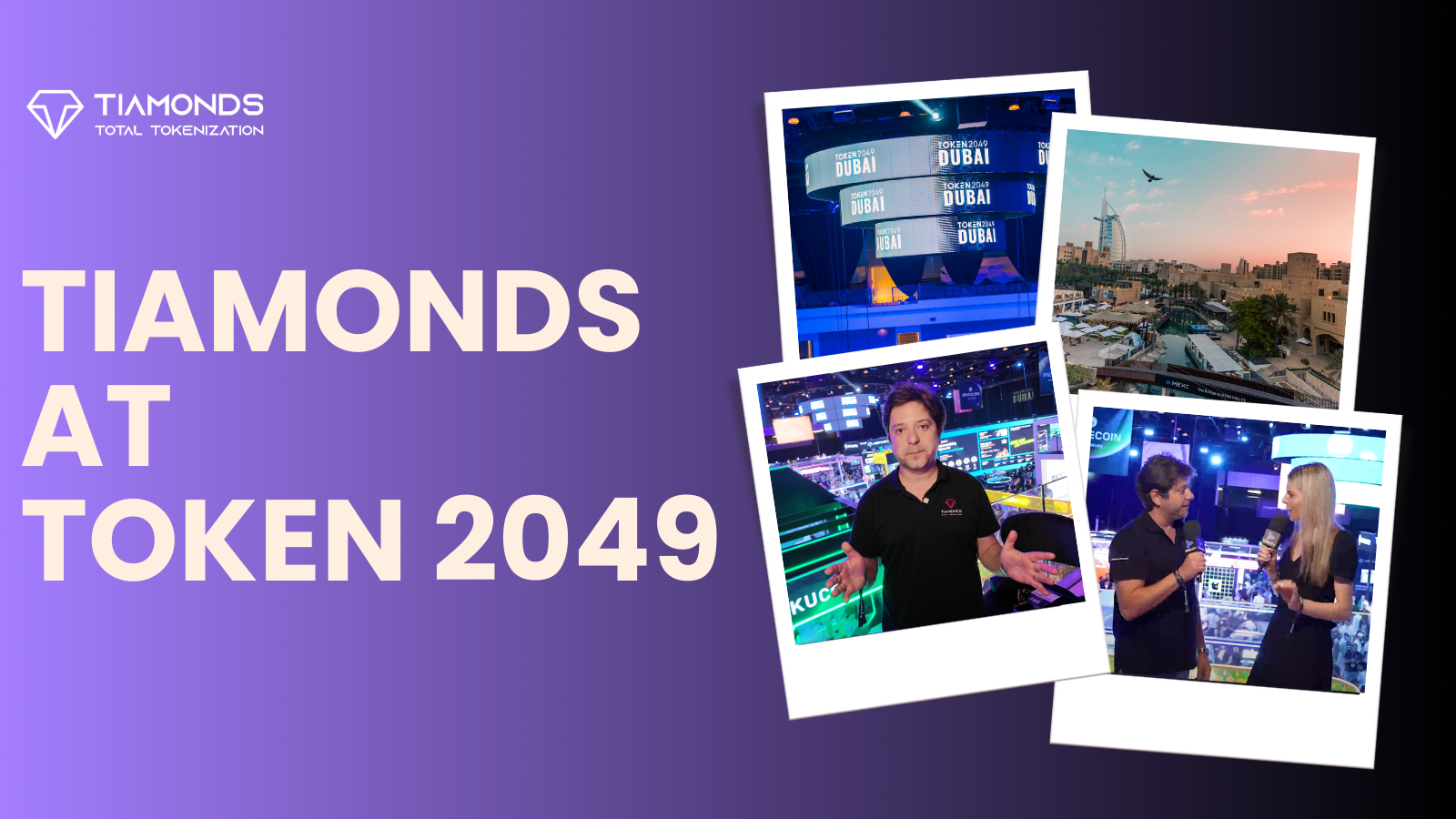The valuation of the global real-estate tokenization market in 2021 was approximately $29 trillion, positioning it among the most sizable markets worldwide. A significant proportion of the global population is involved in the real estate industry. Whether it be as a tenant, proprietor, or employee in the retail, office, or manufacturing sectors. The valuation of the global real estate market in 2021 was approximately $29 trillion, positioning it among the most sizable markets worldwide.
In contrast to other asset classes, real estate exhibits a lack of liquidity and inefficiency.
- Weeks to months may pass before a counterparty is located.
- Prices for sales vary across a specified range.
- Closing real estate transactions requires weeks.
- A multitude of service providers are required for the transaction.
Table of Contents:
Toggle
A Brief Overview of Real-Estate Tokenization
Real estate that is tokenized represents its financial flows or a property itself as a blockchain token (or tokens). That facilitate digital ownership, streamline operations, and increase liquidity. Blockchain technology for tokenized real estate typically requires the application of fungible or non-fungible tokens (NFTs). This depends on the intended purpose and the nature of the tokenized asset. When considering a property or group of properties as a whole (i.e., one or more properties, one token), NFTs are advantageous. When fractionalizing a whole into parts (e.g., one or more properties, one hundred tokens), fungible tokens are useful.
The market for real-estate tokenization was valued at $18.2 billion in 2023. It is expanding at a CAGR of 19.8%; by 2030, it is anticipated to reach one trillion dollars.
Real-Estate Tokenization: Solving Problem With Blockchain
The conventional hurdles that emerge from real estate investments consist of a scarcity of investment capital. This includes exorbitant construction material expenses, and a heavy reliance on physical labor. However, in addition to the complexities of domestic real estate law. The market also faces legal obstacles related to land acquisition, the development of robust, secure databases, and intensifying competition.
The compromised impediments of the real estate sector have ramifications for the market’s overall efficiency. Many developing economies are still in the early stages of embracing new technological components, such as asset digitization and the establishment of more transparent mechanisms. This could provide a fresh avenue for resolving real estate asset-related issues.
Despite advancements in traditional information flow and transaction finishing mechanisms. 6 In light of the prevailing challenges in the real estate sector that lack viable resolutions. It is imperative that real estate market participants remain well-informed and actively investigate the most recent technological developments.
To overcome the conventional constraints of the real estate industry, a collective endeavor is necessary to acknowledge and adopt the new capabilities that are inherent in technological advancements. Blockchain technology has brought about an unprecedented level of transparency that has profoundly altered the horizon. This is done by enabling the storage of data securely, facilitating the distribution of information more quickly, and coordinating contractual obligations while reducing costs and time.
Moreover, in the majority of countries around the globe, real-asset tokenization represents an uncommon and untapped opportunity. As a result, purchasers are now capable of conducting immutable transactions via tokenized real estate.
Leading Countries Investing in Real-Estate Tokenization
The United States
The United States dominance in the tokenized real estate market is not unexpected. It presents an opportune location for the tokenization of real estate due to its well-established financial system. That is strong legal framework, and established property rights. Furthermore, the nation’s expansive real estate market and wide variety of property categories offer abundant prospects for investment.
Real estate assets tokenized for the benefit of investors and business owners include residential and commercial properties, as well as luxury resorts. The regulatory environment and the profusion of real estate crowdfunding platforms in the United States. This makes it an attractive destination for investors seeking to profit from tokenized real estate holdings.
Switzerland
Switzerland, renowned for its favourable business climate and robust investor protection legislation, is a thriving centre for tokenized real estate markets. The nation’s established financial institutions, political neutrality, and stability attract international investors.
Furthermore, Zug, nicknamed “Crypto Valley” due to its hospitable ecosystem, demonstrates Switzerland’s proactive adoption of blockchain technology. Switzerland’s tokenized real estate platforms provide a diverse selection of investment prospects, encompassing both residential and commercial complexes. The transparent regulatory framework further bolsters investor confidence and provides legal protection.
Germany
In addition to its robust automotive industry and robust economy, Germany is experiencing rapid growth in the tokenized real estate sector. The regulatory authority, has demonstrated a proactive approach in incorporating blockchain technology into legislation. A favorable regulatory environment and a robust real estate market in Germany make the country an alluring investment destination. Platforms such as Bitbond have effectively issued tokenized real estate bonds, enabling investors to enter the German property market with reduced administrative burdens.
Singapore
Singapore, often hailed as a financial superpower, actively embraces the potential of tokenized real estate markets. Renowned for its robust property rights, formidable legal system, and transparency, the city-state recognizes the opportunities presented by this emerging financial innovation. Singapore is an appealing real estate investment destination due to its status as a global business center and its strategic location.
The favorable disposition of the government towards blockchain technology and digital assets serves to augment the allure of tokenized real estate trading. Prospects for investment and entrepreneurship can be discovered in prominent urban developments and residential and commercial real estate. Singapore presents a highly profitable market for individuals interested in investing in tokenized real estate. Thus owing to its financially stable environment and regulatory framework.
United Arab Emirates (UAE)
Tokenized real estate markets have become increasingly prominent in the United Arab Emirates (UAE), specifically in prominent cities such as Dubai and Abu Dhabi. The UAE provides an advantageous setting for investors and entrepreneurs due to its crypto-friendly regulatory framework. A swiftly expanding economy, and favorable tax policies. It is an appealing location for tokenized real estate investments due to its renowned skyline, high-end developments.
Malta
Referred to as the “Blockchain Island,” Malta is a blockchain-friendly jurisdiction that attracts tokenized real estate ventures. The nation has implemented a supportive ecosystem and exhaustive regulations to govern activities associated with blockchain technology and cryptocurrencies. Malta provides residential and commercial property investment opportunities via a variety of tokenized real estate platforms. A transparent regulatory framework, robust private property protection mechanisms, and governmental backing collectively render Malta an enticing hub for individuals interested in participating in tokenized real estate transactions.
To Conclude
Globally, real-estate tokenization markets provide entrepreneurs and investors with access to innovative new opportunities. While the aforementioned nations appear to be viable investment destinations for tokenized real estate investors, they are not the only ones.
As jurisdictions around the world establish clear regulations for the digital asset market and the prevalence of this type of investment increases. Thus, the global demand for tokenized real estate will continue to rise. Global demand for tokenized real estate will increase in tandem with the jurisdictions of various nations continuing to establish clear regulations for the digital asset market and the increasing popularity of this type of investment.




